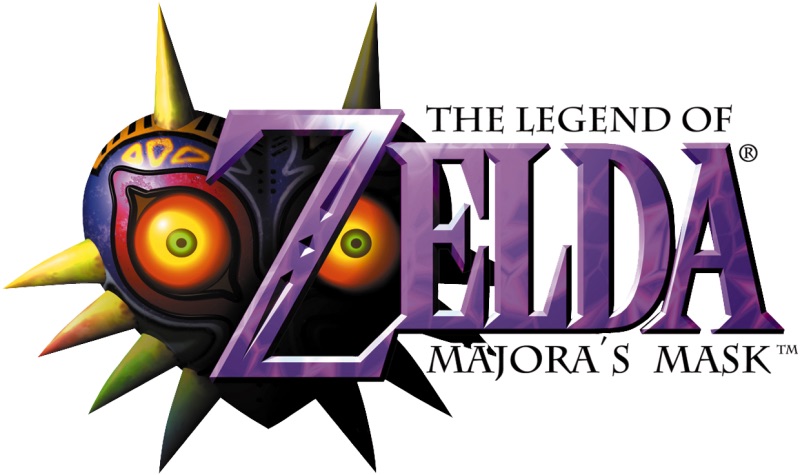
I don’t know what happened. You might have noticed I haven’t posted on this site in some time. For a few months even. Though I cannot exactly put my finger on it, something had changed the way I felt about games. They just…stopped being interesting recently, and, as a result, my desire to play them dropped precipitously. Then Nintendo did what it does on occasion by speaking – directly – to its customer base, announcing that soon there will be a remake of Majora’s Mask for the 3DS. And that started my road back to enjoying the pastime I have loved for so long.
When I attempted to dissect the reasoning behind my departure, a couple of reasons sprang to mind. The first was relatively simple: other things took the place of the games. Three activities usually ebb and flow in the consumption of my time: games, books, TV. When I’m focused on one, the other two usually fall to the wayside for a bit, and this construct is almost intentional. I don’t want to get really burned out on any of these things, so changing what I focus my spare time on helps. But what was different this time was the apathy. Normally, when I’m really into reading or a TV show, it’s not that I dislike games. It’s just doing a different thing. This time I was kind of actively looking down on games.
That realization brought me to what might be the second reason: this apathy, I believe, stems largely from where the industry is right now. We are in this golden age of technology from your pocket to your couch to your desk, but this year especially it seems like we have weathered so many high profile games that released either broken or severely underwhelming (or both). Mix that with so-called “gamers” who had nothing better to do than create movements fueled by misogyny and the fear they were getting “kicked out” of their beloved gaming bubble, and the resultant atmosphere around games just wasn’t one that was really that fun for a while. It’s hard to be excited when the only news being created were about how many bugs are in that brand new game or about how some angry nerd(s) tried to ruin the lives of others because they had the audacity to encourage equality.
But, somehow, Majora’s Mask broke the spell.
[youtube https://www.youtube.com/watch?v=Hj6cXziHpjQ&w=760]
Majora’s Mask is a game that tons of people love, but when I first went through it as a kid, I didn’t hold it in such high regard. I firmly believe I was too dumb for the game. I definitely finished it, but I was too dumb to really internalize the plight of the citizens of Termina. Instead, on my first play through, I focused on getting things done for the sake of them and got frustrated at the time limit and silly things like that. As an adult, the game hit a different note, one that was filled with the sadness, regret, and loss the digital characters were displaying that my child-mind glossed over.
One of the first shocking rediscoveries is Link’s transformations, again something that I quickly mashed A through when I was younger. When you stop to really watch and listen to the animation, you hear Link scream as the mask melds with his body. The sounds of cracking bones can be heard as his body shifts from a child to a deku scrub, Goron, or Zora. I didn’t realize before that those masks held within them the spirits of their original, corporeal forms. I didn’t realize that Link, each time he put on those masks, was taking on all of the past grief and emotion that was held inside. It’s both terrifying to watch and heartbreaking at the same time. My younger self just thought it was creepy and moved on.
Then, of course, the real heart of the game: the townspeople. It’s amazing how little I remember about the gameplay, items, or dungeons in the game versus how I remember the townspeople. While you interact with townsfolk in other games all the time, here it’s something special. In other games, you might do a quest for someone simply because you know you’ll get a good item in the end. Here, I always thought of the character first. I helped characters because they needed help.
You did something good with little benefit for yourself, and then the game twists that joy for sadness once again because at the end of three days you have to start over. Link walks out of the clocktower once again on Day 1, and those that you helped are none the wiser that you had just solved their problem. They are back to the worried state they once were, and this time you may not be able to help them. Even if you did everything right, had a perfect run on helping everyone you could in the game in 72 hours, there would still be some you couldn’t help simply because it was impossible to do so. That’s heavy. And that feeling of despair coupled with the desire to help is so well crafted in the game it ended up flipping some switch in my mind that had been turned off. There’s a reason why you’ll still see people mention Kafei and Anju on message boards or Reddit when the topic is “best love stories.”
While playing through this atmosphere of short-lived happiness and pervasive grief, through odd color palettes and minor-keyed music that alienates you (not to mention the five stages of grief on display), in addition to an understanding of why MM is so great, I found my enjoyment of the medium once again.
It’s not about the things that suck in the gaming industry, it’s about the games, stupid. And there will always be good games.